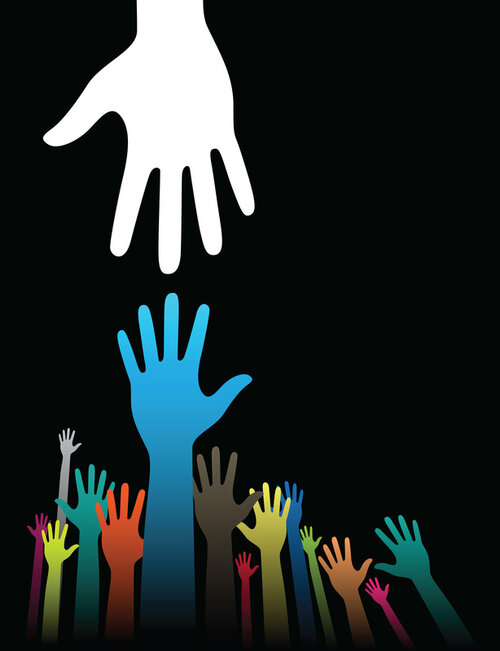Empowering Others to Be Agents of Change in Mental Health
Mental health is a topic that touches the lives of countless individuals, directly or indirectly. The stigma surrounding mental health concerns often leads to silence, isolation, and a lack of action. However, there is an increasing need to revolutionize this, and it begins with empowering others to become agents of change.[1] This article delves into the ways we can facilitate the empowerment of individuals to actively contribute to the betterment of mental health in their communities and beyond.
Education and Awareness
To facilitate the empowerment of others, we must first provide them with knowledge and understanding. Mental health education is key to breaking down the stigma and ignorance that surrounds it. Organize workshops, seminars, and training sessions to provide information on mental health disorders, symptoms, and treatment options. Knowledge empowers individuals to recognize the signs of mental health issues and provide appropriate support.
Open Dialogue, Destigmatization, and Peer Support Networks
Encourage open, judgment-free conversations about mental health. Normalize discussions around mental health concerns and share stories of resilience and recovery.[2] When individuals feel safe to express their thoughts and experiences, it helps reduce the fear and shame associated with mental health issues. Further, create and promote peer support groups where individuals can connect with others who have faced similar mental health challenges. These networks offer a sense of belonging, understanding, and encouragement, making those who’ve struggled feel less alone.[3]
Mentoring and Leadership[4], Advocacy and Policy Change
Identify and nurture relationships with individuals who are passionate about mental health advocacy. Mentor them in leadership roles to guide initiatives and projects. Encouraging leadership within the community empowers individuals to take action and make a real difference. Further, empower individuals to advocate for changes in mental health policy at local, state, and national levels. It’s through advocacy that we can ensure better access to mental health care, improved insurance coverage, and reduced stigma.[5]
Access to Resources, and Encourage Volunteerism
Ensure easy access to mental health resources, including helplines, crisis intervention services, and mental health professionals. Facilitate the empowerment of others by providing them with the tools they need to seek help and support. In addition, encourage people to get involved in local mental health organizations and initiatives. Volunteering is a powerful way for individuals to directly contribute to the mental health causes that they care about impacting. This active involvement fosters a sense of empowerment and purpose.
Celebrate Small Victories, Promote Self-Care, and Leading by Example
Recognize and celebrate every small step and achievement. Whether it’s a personal milestone in mental health recovery or a successful community event, these victories serve as a source of motivation for others. Encourage individuals to prioritize self-care and stress management. Teach them the importance of maintaining their mental well-being as they engage in mental health advocacy. Perhaps the most powerful way to facilitate the empowerment of others is by leading through personal example. When individuals see someone who embodies the values of empathy, compassion, and resilience, it inspires them to follow suit.[6]
Conclusion
Facilitating the empowerment of others to be agents of change in mental health is not just a noble pursuit; it’s a necessity. By educating, fostering dialogue, and providing support, we can create a community where mental health is destigmatized and accessible to all. The collective efforts of empowered individuals can make a significant impact on the mental health landscape, helping those who need it most and creating a world where mental well-being is valued and prioritized. Together, we can break the silence, reduce stigma, and promote positive change in mental health.
What’s Next:
- Enroll in our 23-week certificate course, Social Work Power. Click now to embark on the journey of unleashing the powerful social worker within you!
- Spread the word to as many of your Social Work colleagues as you can about the SWEET movement for Transforming Mental Health through Social Work.
- Stay tuned for the upcoming article in this series!
[1] Ornelas, José, et al. “The role of community integration and empowerment for the transformative change in community mental health.” Community Psychology in Global Perspective 5.1 (2019): 38-55.
[2] Matson-Barkat, Sheila, et al. “Destigmatisation through social sharing of emotions and empowerment: The case of disabled athletes and consumers of disability sports.” Journal of Business Research 149 (2022): 77-84.
[3] Reis, Graziela, et al. “Citizenship, social justice and collective empowerment: living outside mental illness.” Psychiatric Quarterly 93.2 (2022): 537-546.
[4] Maisyura, Maisyura, Ti Aisyah, and Rico Nur Ilham. “TRANSFORMATIONAL LEADERSHIP IN ORGANIZATIONAL TRANSFORMATION.” Jurnal Ekonomi 11.03 (2022): 478-488.
[5] Monteiro, Maria Fátima Jorge, et al. “What transformation? A qualitative study of empowering settings and community mental health organizations.” Global Journal of Community Psychology Practice 5 (2014): 1-13.
[6] Prescott, Susan L., et al. “No Health without Mental Health: Taking Action to Heal a World in Distress—With People, Places, and Planet ‘in Mind’.” (2022): 37.









